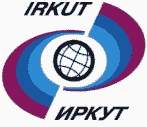Strategic Alliances Needed To Make Country Competitive
For an industry long absent from the international arena,
Russian aircraft manufacturers generated a surprising amount of
interest at Farnborough this year. Although Western companies like
Airbus and Boeing dominate the narrow-body and wide-body category,
Embraer and Bombardier the regional jet category, and Bombardier
and ATR the turbo-prop category, things are slowly shifting.
Because the Airbus A320 aircraft family and Boeing 737 family are
still on the fence about whether to adopt the clean sheet narrow
body model, newcomers have a rare opportunity to optimize on market
interest in the production of such aircraft, according to Frost
& Sullivan. With the right strategic partnerships with western
manufacturers, Russian aircraft are more likely to succeed on the
international arena.

"There is a need for greater efficiency in aircraft, given the
volatility of fuel prices, strong competition in the airline sector
for lower operating costs, and environmental pressures," says Frost
& Sullivan's Commercial Aviation Consulting Analyst, Max
Sukkhasantikul in a new article entitled Frost & Sullivan: The
Russian Aircraft Industry Comes of Age. "Russia has produced strong
competing aircraft to the narrow body products of Airbus and Boeing
at a time when both companies need to decide whether to re-engine
narrow body aircraft or produce a clean sheet design."
Currently, the only Russian manufacturers offering potential for
greater foreign market interest are Sukhoi and Irkut. Sukhoi, a new
player in the commercial aircraft market, presently leads the way
in Russian aircraft sales, with more than 100 orders and potential
orders for the SuperJet product. Similarly, Irkut is looking to
enter the market with the MC-21, an aircraft comparable to the
Airbus A320 and Boeing 737 families, but is still yet to see
further international market penetration.

"The key difference between Sukhoi and other Russian aircraft
manufacturers is strong support and partnership from major western
suppliers, such as Italy's Finmeccanica," says Sukkhasantikul.
"Finmeccanica holds an equity stake in Sukhoi through its
subsidiary Alenia Aeronautica, through which SuperJet was
co-developed. This partnership offers vast strategic value. Not
only is Alenia Aeronautica a western entity, it is also a major
aerospace company, supplying structures to a number of aircraft
types such as the Boeing 787. This is exactly the type of support
Russian aircraft manufacturers need to develop a strong reputation
for commercial aircraft beyond its local markets." Sukhoi has
also established a partnership with Snecma, a major French
aerospace and defence engine supplier that is co-developing the
powerplant for Sukhoi with the SaM146 engine.
Sukkhasantikul contends that the advantages of Western-Russian
partnerships are mutual. Western manufacturers will profit from
Russia's aerospace engineering excellence and the expansion of
market access, whilst their Russian partners leverage the support,
technology, and reputation of Western aerospace companies to
promote success outside the home market. For Russia, strong Western
support is critical to secure global market acceptance. Should
Russian manufacturers gain such support, Russian aircraft will
become more accessible in the international market.

However, he says, it is not only the reputation and market
perception of Russian aircraft that present complications for the
industry. Companies like Irkut have to grapple with logistical
bottlenecks, as they strive to produce commercial aircraft that
will meet international standards. This is because most Russian
aircraft manufacturers, including Sukhoi, were traditionally
military aircraft producers with little commercial aircraft
experience.
 ANN's Daily Aero-Linx (04.16.24)
ANN's Daily Aero-Linx (04.16.24) Aero-News: Quote of the Day (04.16.24)
Aero-News: Quote of the Day (04.16.24) Airborne 04.10.24: SnF24!, A50 Heritage Reveal, HeliCycle!, Montaer MC-01
Airborne 04.10.24: SnF24!, A50 Heritage Reveal, HeliCycle!, Montaer MC-01 Airborne 04.12.24: SnF24!, G100UL Is Here, Holy Micro, Plane Tags
Airborne 04.12.24: SnF24!, G100UL Is Here, Holy Micro, Plane Tags Airborne-Flight Training 04.17.24: Feds Need Controllers, Spirit Delay, Redbird
Airborne-Flight Training 04.17.24: Feds Need Controllers, Spirit Delay, Redbird





